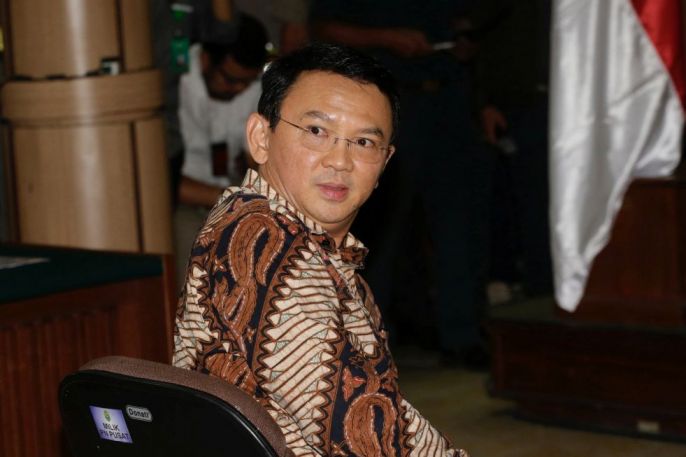Jakarta Governor Basuki “Ahok” Tjahaja Purnama was reinstated as the active governor on Saturday after his mandated leave during the campaign period. However, his political opponents are now fiercely opposing the government’s decision to let him return to office while he remains a suspect during his ongoing blasphemy trial, an issue they and most of the local media has now dubbed “Ahok-Gate”.
At the heart of “Ahok-Gate” is a legal ambiguity created by the public prosecutors in Ahok’s blasphemy trial.
The 2014 Regional Government law state that regional heads suspected of a crime with a sentencing recommendation of five years or more must be suspended. Home Affairs Minister Tjahjo Kumolo had previously decided to allow Ahok to return to office because prosecutors had charged Ahok with violating Article 156 of the Criminal Code, which carries with it a maximum four-year sentence.
However, prosecutors also included an “alternative” charge (literally, the word “or” is used in between the articles in the prosecution’s’ filing) that Ahok had violated Article 156A of the Criminal Code, which carries a maximum five-year sentence.
Politicians from parties backing Ahok’s rivals in tomorrow’s election, including Gerindra (which is supporting gubernatorial candidate Anies Baswedan), have been loudly pushing for a right of inquiry (hak angket) into Ahok’s reinstatement on those grounds. Four parties and over 90 House members have said they support the inquiry.
But other parties are opposing the inquiry as unnecessary. “The key word is a sentencing recommendation of 5 years in jail. It is stipulated in the Regional Government Law. I believe that the Home Affairs Minister’s decision to reinstate Basuki was based on a [strong] legal basis,” Golkar Party faction secretary Agus Gumiwang said yesterday as quoted by Tempo.
Indeed, Tjahjo has said that he could not suspend Ahok until prosecutors in his case decided which article they would actually charge him with and issued their sentencing recommendation based on that.
Some have criticized the House members backing the inquiry for trying to create another political controversy around Ahok on the eve of the election, during the mandated “quiet period” where campaigning is supposed to be prohibited.
Nevertheless, pressure from the “Ahok-Gaters” has forced President Joko Widodo’s hand and Tjahjo has now said that he will consult with the Supreme Court today about Ahok’s reinstatement and deliver his findings to Jokowi later.




